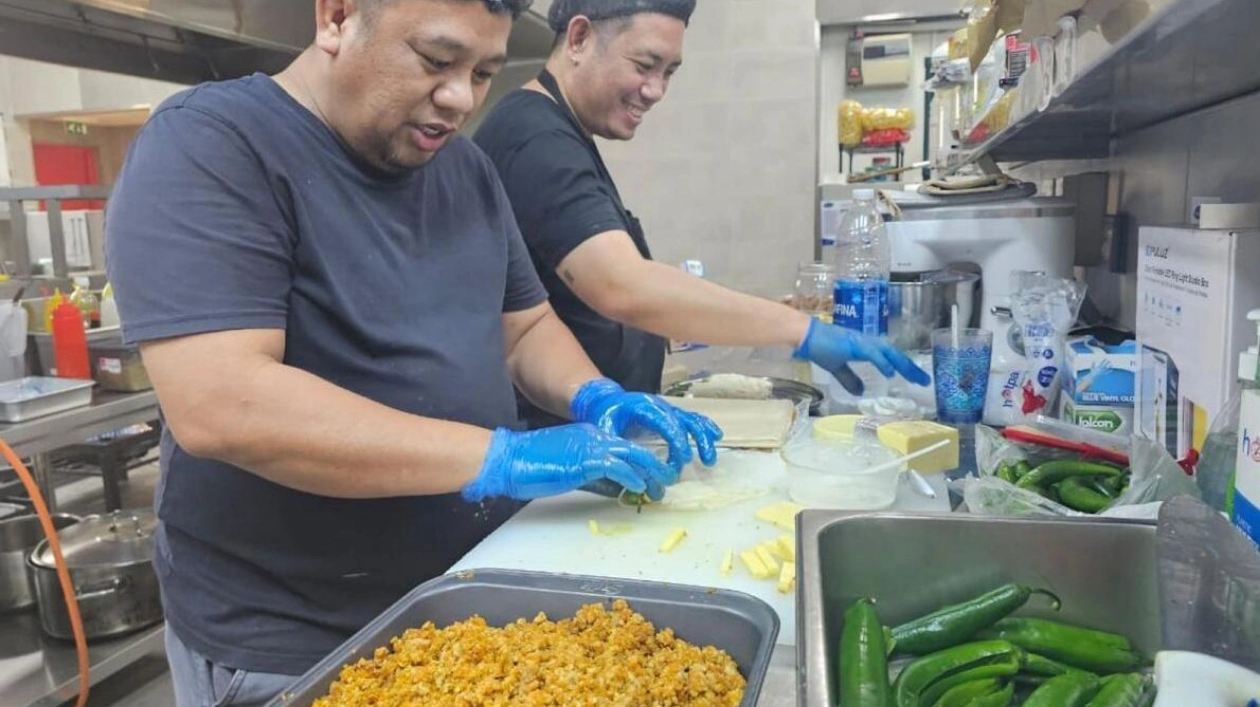While operating in cloud or co-working kitchens can reduce expenses, it also acts as a hub for innovation for aspiring culinary entrepreneurs and chefs, ensuring customers receive fresh, fast food. As the culinary landscape in the UAE continues to develop, cloud kitchens are significantly influencing the future of dining, providing unique benefits that traditional restaurants often find challenging to replicate.
Chef JR Nueda, a former 5-star restaurant chef, has ventured into the cloud kitchen sector with a dessert that is both surprising and delectable – nugget ice cream. “It appears like a chicken nugget on the outside, but when you take a bite, it’s ice cream,” explained Nueda. Operating under the brand name Torchify, Nueda sells the product via food delivery apps, leveraging quick delivery. “For us, operating in a cloud kitchen is a highly advantageous choice. The kitchen offers all the essential equipment, space, and facilities,” noted Nueda. This setup not only helps him save on the high costs associated with running a traditional restaurant but also ensures his unique dessert reaches customers within just 15 minutes of placing an order. Nueda’s experience in a five-star hotel has equipped him with the skills to maintain high standards.
Chef Chris Cruz, who works at Kape @ Kakanin, has also adopted the cloud kitchen model to boost their business. With two retail locations in Satwa and Muraqqabat, specializing in traditional Filipino cuisine, the restaurant has found a way to scale its operations without compromising on quality. “We have small kitchens at our physical locations, but we utilize the cloud kitchen for ingredient preparation and managing bulk orders,” said Cruz. This strategic use of a cloud kitchen in Al Quoz allows them to maintain the authenticity of their dishes while meeting the increasing demand for the cuisine. Assisted by chef Merald Macalindong, the restaurant has seamlessly integrated the cloud kitchen model into their business, ensuring food is prepared efficiently and delivered fresh to customers.
Another brand that operates from a co-working kitchen is Smacko, a homegrown Dubai brand, specializing in mac and cheese. Operating from The Co Kitchen in Al Quoz, Smacko is gradually tapping into the growing demand for online food delivery. Fred Kawuli, the chef at Smacko, emphasized the benefits of the cloud kitchen model: “Our online business is expanding, with more people opting for the convenience of food delivery over dining out. The preference for dining at home has made co-working kitchens an appealing option for culinary entrepreneurs aiming to cut overhead costs while reaching a wider audience.” By focusing on quick delivery and consistent quality, Smacko is catering to a market that demonstrates cloud kitchens are not just a trend but a sustainable, long-term business model.






